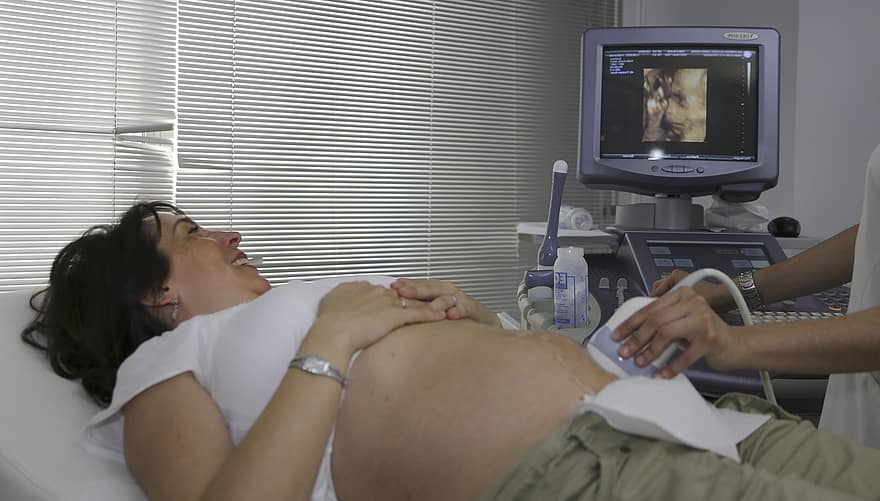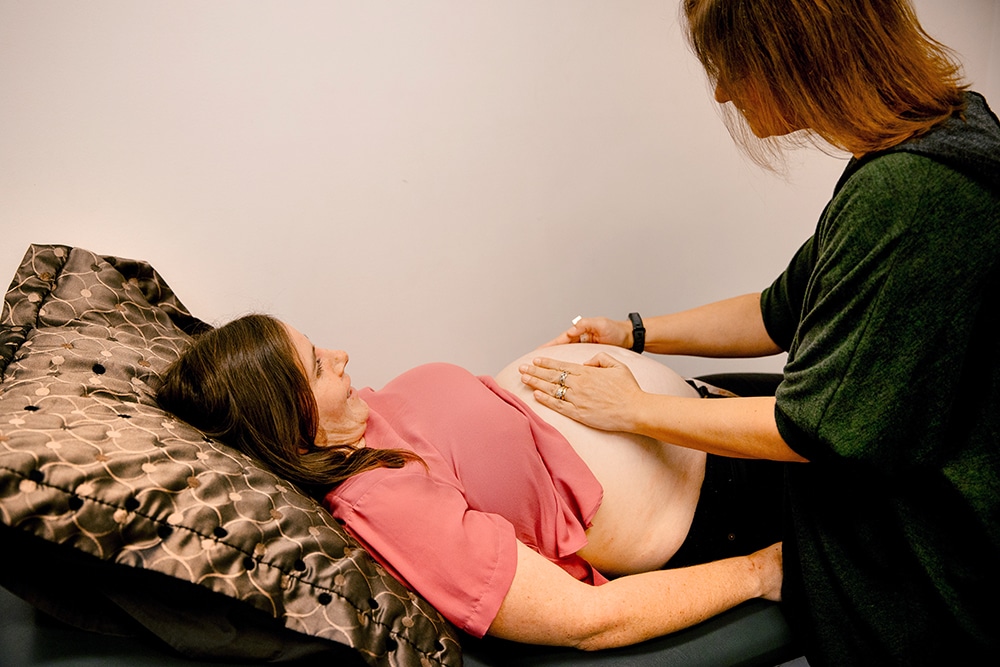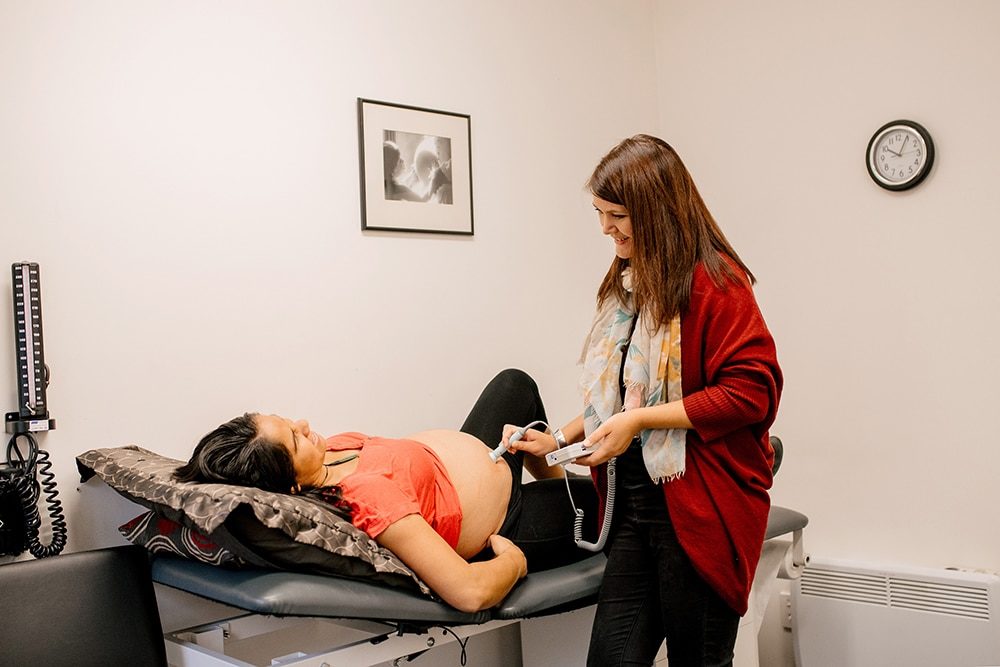Having a baby is a normal life event and there are very few interventions that are necessary during pregnancy for a well and healthy woman and developing baby. The laboratory tests and screening tests recommended during pregnancy are undertaken to provide important information as part of the ongoing assessment of the wellbeing of both the woman and her baby.
Your midwife will discuss any recommended assessments, blood tests, or screening tests with you and will answer any questions you may have. This may include providing written information as well as being involved in a verbal discussion. Your midwife will also follow up the results of any tests and discuss the findings, and any referrals necessary, with you. Copies of screening tests are included in the clinical records/maternity notes.
When you see your midwife during pregnancy some tests will be offered to check the wellbeing of you and your baby. Blood pressure is checked regularly, a urine sample is tested and the midwife will examine (palpate) the abdomen to assess growth and will also listen to the baby’s heartbeat.
What is screening?
The word screening is used a lot during pregnancy. It means a test (or sometimes questions) offered to all pregnant women to predict the likelihood that a condition may exist or develop. Screening can provide some information about the chance of your baby having particular conditions and may indicate the need for further tests to get a definite result.
Blood tests in pregnancy
Blood tests are an important part of checking the woman’s wellbeing during pregnancy and picking up on things that can be treated to improve the health of women and babies.
There is no cost for blood tests during pregnancy.
Midwives will offer women blood tests at the first visit if this has not already been done with another health care provider.
The test checks the woman’s:
- Blood group and the Rhesus factor. The midwife will give specific information to women who have a Rhesus negative blood type
- Antibodies: if antibodies are present the midwife will discuss referring to an obstetrician for increased monitoring.
- Iron level (haemoglobin and sometimes ferritin) to check for anaemia
- Rubella immunity
- Infections that can be treated or managed to prevent harm to the baby: these include hepatitis B, syphilis and HIV
- Glucose (HbA1c): checks whether the woman has diabetes or is at higher developing diabetes.
The midwife will offer another blood test around 28 weeks for iron levels, antibodies and to screen or test for gestational diabetes. The midwife may also recommend rechecking iron and antibodies at 36 weeks.
Click here for more detailed information about these blood tests
HIV (Human Immunodeficiency Virus)
This is a free test. Your midwife will discuss the test, the implications of being HIV positive and pregnant, the risk factors for transmission and ensure you are supported to obtain further information about HIV screening if needed.
First trimester combined screening for Down Syndrome and other conditions
All women are offered the option of screening for Down Syndrome and other conditions that relate to the baby’s chromosomes. It is a personal decision whether or not to have this screening. The screen involves a blood test between 9 weeks and 13 weeks + 6 days along with an ultrasound scan between 12 weeks and 13 weeks + 6 days. The results are combined. If the woman is 14 weeks to 20 weeks pregnant, it is possible to screen with a blood test only. The result provides an estimate of the chance of one of these conditions, for example 1 in 1,000.
Ultrasound scanning

Ultrasound scans use sound waves to create a picture of the baby in the uterus and they are carried out by trained health professionals called sonographers. The main purpose of pregnancy ultrasound scans is to check the baby’s anatomy and whether the baby may have congenital problems. Scans can also be used in pregnancy to check whether the baby’s growth and development are progressing well, or to check for other specific things such as the position of the placenta. These screening tests are not compulsory and it is important to talk to your midwife throughout the process.
Growth of the baby
Midwives check the growth of babies by palpating the abdomen. The midwife can feel the top of the uterus and also the size of the baby. Continuity of care from a midwife means that the progress of the pregnancy can be consistently assessed and because the midwife has been palpating the abdomen regularly during pregnancy this helps with assessing growth patterns. If there is any concern about a baby’s growth, referrals for further assessments may be made. Women who are referred for growth scans are usually referred for repeat scans with two to four week intervals between scans so that the baby has more time to grow between scans and so growth can be tracked. Talking with your midwife throughout the process is important so she can answer questions and support you throughout.

